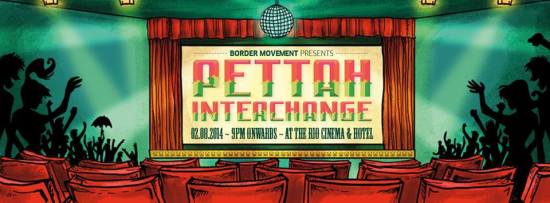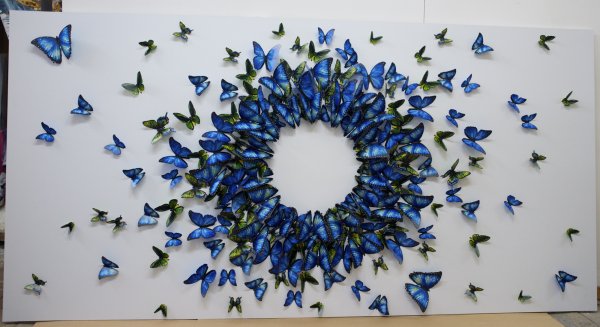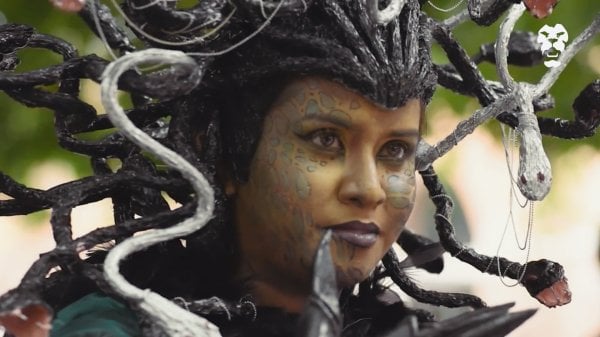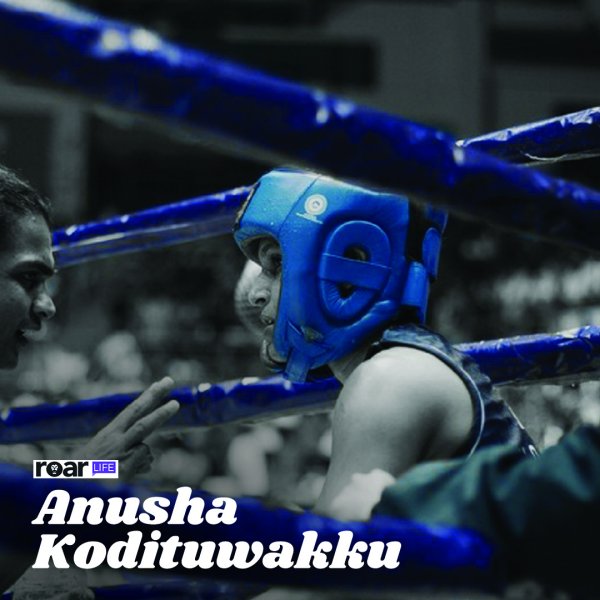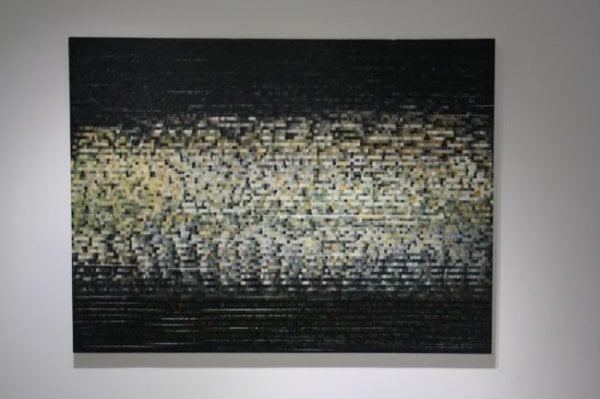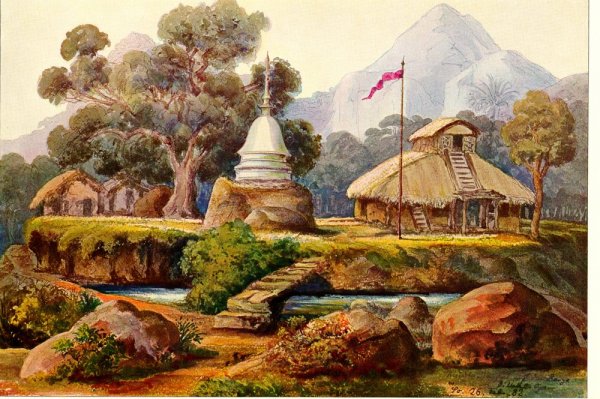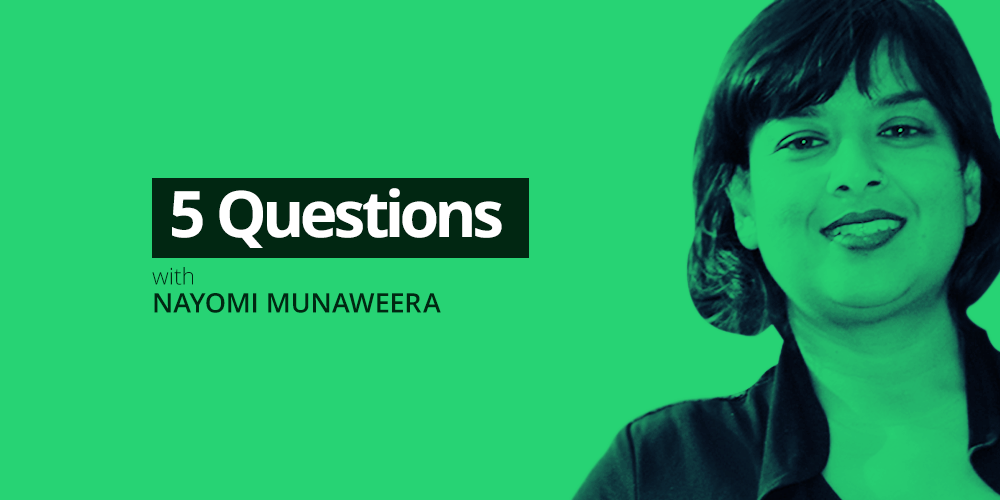
Five Questions is a short series where we interview interesting personalities and shine the spotlight on some of Sri Lanka’s more intriguing professions.
“Writing fiction is really about observing life, doing research and creating some hybrid of the two. I use bits and pieces of my own life but this is then churned through the lens of imagination to create something completely different, perhaps unrecognizable.”
Nayomi Munaweera, award-winning author of Island of a Thousand Mirrors and What Lies Between Us, doesn’t believe in writer’s block. “If you can’t write, go and do the research or read something fantastic,” she said. “Your book or story will come back to you.”
Her first book, Island of a Thousand Mirrors, took five years to write and then another five years to find a publisher. It was eventually published 10 years after she first started on it. Despite the delays, the book won the Commonwealth Regional Prize for Asia in 2013, and the State Literary Award just last year.
Based in the United States, Munaweera spends her time teaching college students and working on her third novel. She is currently in Sri Lanka on an annual visit.
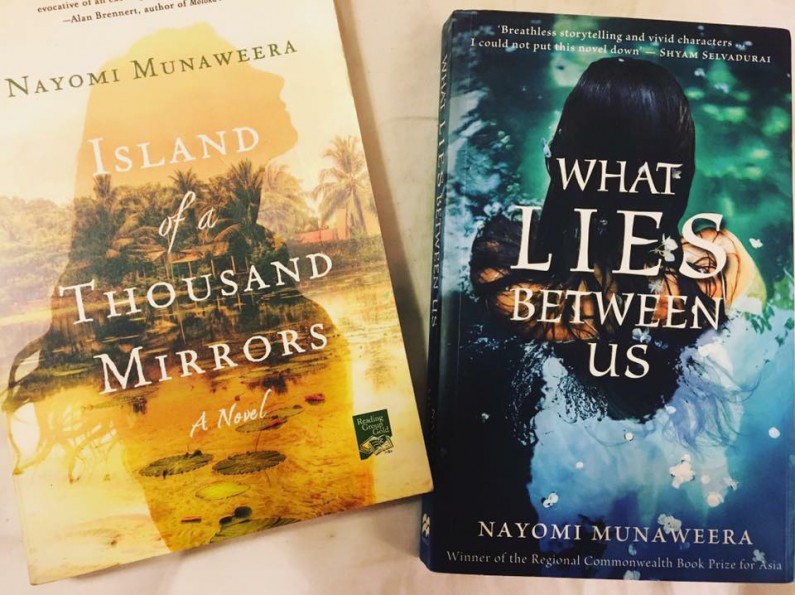
Both novels published so far, with a third in the works. Image credit: facebook.com/nayomi.munaweera
1. You’ve lived overseas for most of your life, despite visiting Sri Lanka every year. What impact does this have on your writing, especially since most of the context is very local?
Sri Lanka is a huge source of inspiration and revelation to me. There are dramatic stories everywhere you turn here. Stories flourish like foliage here, and I can’t help but be influenced. South Asian writing really mirrors the multiplicity of the setting. It’s much more florid that Western writing, this is due to the multiplicity of stories available here.
2. Who is an author you disagree with, but would still read? and why?
Fantastic question. As a young writer I used to read Naipaul. Now, I take tremendous issue with his statements that women cannot write. He’s a writer I once respected and no longer do.
3. Your first book got rejected when you initially pitched it in the States, but you proceeded to work on your second novel nonetheless. How did you deal with the rejection and continue writing?
You write because you have no choice. As a writer, rejection is constant and guaranteed. We don’t really write for publication, we write for ourselves and hope, wish and pray for publication because it will pay the bills and allow us to write more. But the writing is intrinsic to us, we wouldn’t stop if every single thing got rejected—it’s just what we do. I was writing long, long before publication. I would write even if nothing ever got published again.
4. How do you start on a novel, and what is your working routine like?
You root around for a big idea. You have many starts, then realize the idea won’t obsess you for years. Finally an idea sets your brain on fire and you know it’s the big one. Then you write and rewrite that book for years—between four and ten years for me. You rewrite every sentence and paragraphs about 2o times. You hope and pray someone will publish it, and then that other people will buy and read it. Then you do that again.
5. One piece of advice you’d give aspiring writers or, your readers?
Don’t write to please your mother, your aunty, your uncle or anyone else. The books which will make them happy will probably not have too much impact on the world. Write about the hard, painful, difficult parts of your life and the lives of people around you. Write about the things our society tries to keep secret, the things that are not supposed to be discussed. Pull those issues into the light so that people going through that issue realize that they are not alone, [that] others have felt exactly the same way. The point of literature is to make us feel deeply, and to make us empathize. This only happens when the writer is very honest and direct, even in their fiction-making. Those are the books that affect people and perhaps even change the world.
Cover credit: galleliteraryfestival.com
